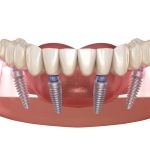How to Treat a Cavity in a Molar Tooth: Effective Solutions and Tips
- Understanding Cavities in Molar Teeth
- Signs You Have a Cavity in Your Molar
- How to Treat a Cavity in a Molar Tooth
- Treatment Options for Cavities in Molars
- Preventing Cavities in Molars
- Real-Life Examples of Molar Cavity Treatments
- Why Choose Professional Dental Care
Understanding Cavities in Molar Teeth
A cavity in a molar tooth is a common dental issue that occurs when bacteria in the mouth break down food particles and sugars, leading to the formation of acid that erodes the tooth enamel. Molar teeth, due to their large surface area and deep grooves, are more prone to cavities, making regular dental care essential.
Molars are vital for chewing, so it's crucial to address any cavities in these teeth promptly to avoid further damage. Cavities can spread deeper into the tooth, potentially leading to infection or tooth loss if left untreated.
Signs You Have a Cavity in Your Molar
Detecting a cavity early is key to minimizing damage and preventing more serious issues. Some common signs that you may have a cavity in a molar include:
- Tooth Sensitivity: You might experience sharp pain or discomfort when eating hot, cold, or sweet foods.
- Visible Holes or Discoloration: Cavities can cause visible holes or dark spots in the affected molar.
- Toothache: A persistent or throbbing toothache, especially when chewing, is a common symptom of a cavity.
- Bad Breath or Unpleasant Taste: An infection caused by the cavity can lead to bad breath or a bad taste in your mouth.
If you notice any of these symptoms, it's important to schedule an appointment with your dentist to assess the damage and discuss treatment options.
How to Treat a Cavity in a Molar Tooth
Treating a cavity in a molar tooth depends on the size and severity of the cavity. Here's how treatment typically progresses:
- Diagnosis: Your dentist will conduct a thorough examination, often using X-rays, to determine the extent of the cavity.
- Filling: For small to moderate cavities, the dentist will clean out the decayed portion of the tooth and fill it with a material like amalgam, composite resin, or porcelain.
- Crown Placement: If the cavity is larger, a crown may be placed over the tooth to restore its shape, function, and appearance.
- Root Canal: If the decay has spread to the pulp (inner tissue) of the tooth, a root canal may be necessary. This involves removing the infected pulp, cleaning the tooth, and sealing it to prevent further infection.
Each treatment option is tailored to the severity of the cavity and the patient's specific needs. Your dentist will discuss the best approach for you.
Treatment Options for Cavities in Molars
There are several treatment options available to address cavities in molars, ranging from simple fillings to more complex procedures like root canals. The treatment your dentist recommends will depend on how advanced the cavity is:
- Fillings: Fillings are the most common solution for small cavities. Materials like composite resins or dental amalgam are used to fill the cavity and restore the tooth.
- Crowns: For more extensive damage, a crown might be required. Crowns cover the entire tooth to protect it from further decay and restore its shape and function.
- Root Canals: If the infection has reached the pulp of the tooth, a root canal is necessary to remove the infected tissue and prevent further damage.
- Extraction: In severe cases, if the tooth cannot be saved, it may need to be extracted, and the gap may be filled with an implant or bridge.
Choosing the right treatment for a cavity in a molar is crucial to preserve the tooth's health and function. Your dentist will help guide you through the process.
Preventing Cavities in Molars
Preventing cavities in your molars is essential for maintaining good oral health. Here are a few tips to help avoid molar cavities:
- Brush Regularly: Brush your teeth twice a day with fluoride toothpaste to remove food particles and plaque that can lead to cavities.
- Floss Daily: Flossing helps remove plaque and food particles from between your teeth, where your toothbrush can't reach.
- Limit Sugary Foods: Sugary foods and drinks provide food for the bacteria that cause cavities. Try to reduce your intake of sweets and sugary beverages.
- Visit Your Dentist Regularly: Regular dental checkups and cleanings help catch cavities early and prevent further damage.
By practicing good oral hygiene and seeing your dentist regularly, you can significantly reduce your risk of developing cavities in your molars.
Real-Life Examples of Molar Cavity Treatments
Many people have successfully treated cavities in their molar teeth and avoided further complications. For example, Sarah, a 35-year-old graphic designer, had a large cavity in one of her molars. After visiting her dentist, she opted for a crown to restore the tooth. "I was nervous at first, but the procedure was quick and painless, and now my molar feels as good as new," Sarah shared.
Another case involved John, a 50-year-old lawyer who had a root canal treatment for a severely infected molar. "I was dreading the root canal, but the dentist made me feel at ease, and now my tooth is saved," he said. These real-life experiences demonstrate the effectiveness of modern dental treatments for molar cavities.
Why Choose Professional Dental Care
Choosing professional dental care for treating a cavity in your molar is crucial to ensure proper treatment and avoid complications. Dentists have the expertise to accurately diagnose the problem and recommend the best treatment option for you. Whether you need a filling, crown, or root canal, professional care can help preserve your natural teeth and restore your smile.
For more information on molar cavity treatment or to schedule an appointment, visit Dentistry Toothtruth. Our team is here to provide high-quality dental care and affordable solutions to keep your teeth healthy.







 Gardena Dental Care4.0 (416 review)
Gardena Dental Care4.0 (416 review) Taher Family Dental5.0 (161 review)
Taher Family Dental5.0 (161 review) Sons & Daughters Orthodontics Riverside4.0 (198 review)
Sons & Daughters Orthodontics Riverside4.0 (198 review) NÜVA Smile4.0 (105 review)
NÜVA Smile4.0 (105 review) Murray Orthodontics5.0 (538 review)
Murray Orthodontics5.0 (538 review) Rosen Dental Transitions5.0 (5 review)
Rosen Dental Transitions5.0 (5 review) The Importance of Oral Health Education During Pregnancy for a Healthy Pregnancy
The Importance of Oral Health Education During Pregnancy for a Healthy Pregnancy Best Tips for Brushing Your Teeth Properly for Healthy Gums: Essential Techniques for Oral Health
Best Tips for Brushing Your Teeth Properly for Healthy Gums: Essential Techniques for Oral Health Why Skipping Dental Checkups Can Lead to Bigger Oral Health Problems
Why Skipping Dental Checkups Can Lead to Bigger Oral Health Problems Advantages of Porcelain Dental Restorations
Advantages of Porcelain Dental Restorations How Can Diabetes Cause Tooth and Gum Problems? Preventing and Managing Oral Health Issues
How Can Diabetes Cause Tooth and Gum Problems? Preventing and Managing Oral Health Issues Healthy Habits for Promoting Good Oral Health and Hygiene: Tips for a Healthy Smile
Healthy Habits for Promoting Good Oral Health and Hygiene: Tips for a Healthy Smile